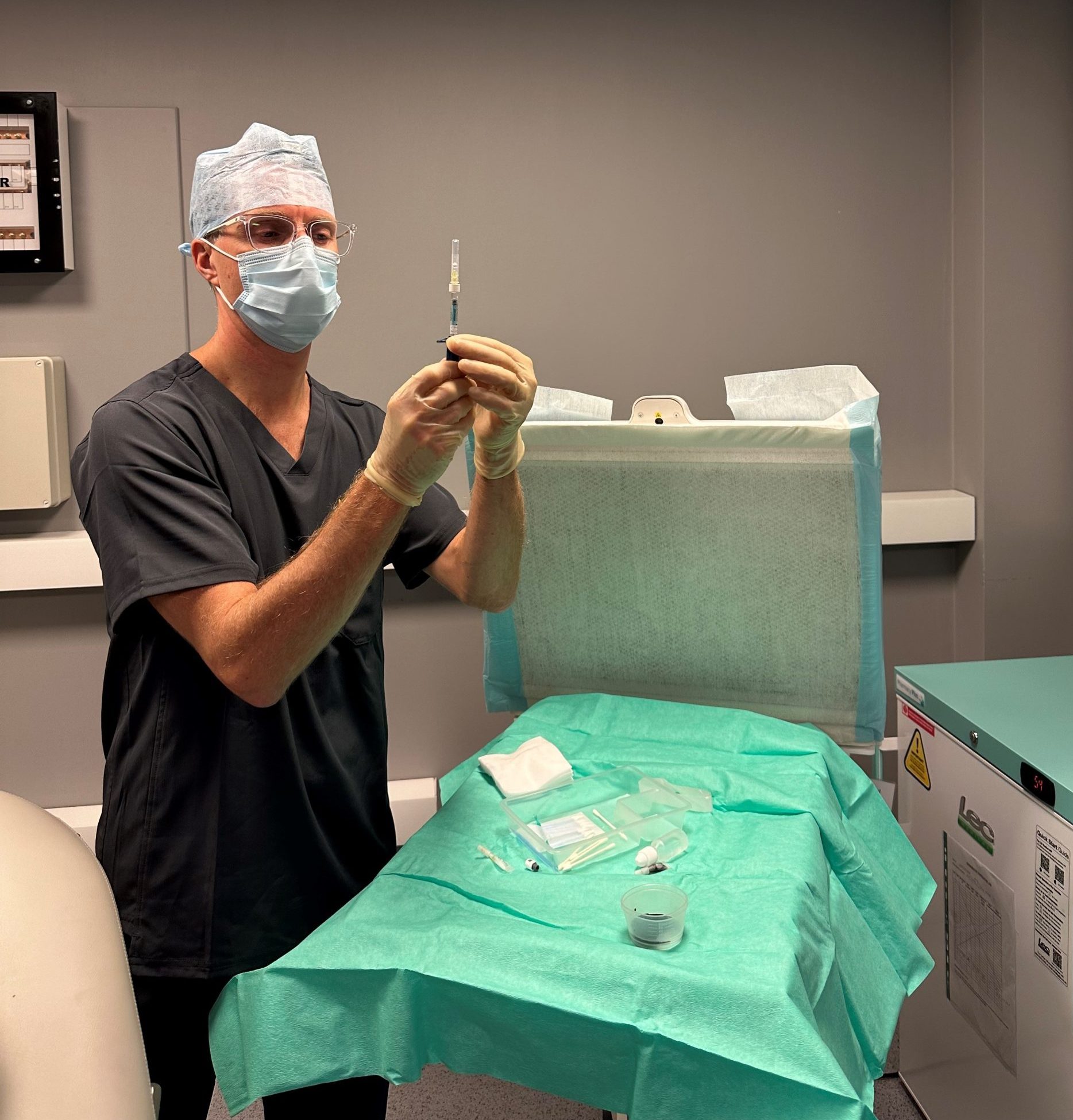NHS delivers first AMD treatment procedure
 An NHS patient has become the first person in a real-world setting to benefit from a device that ensures precise dosing of a medication for wet age-related macular degeneration (AMD).
An NHS patient has become the first person in a real-world setting to benefit from a device that ensures precise dosing of a medication for wet age-related macular degeneration (AMD).
The OcuClick syringe was used by ophthalmologist Professor Richard Gale at the Newmedica Lincolnshire eye clinic and surgical centre that delivers NHS services.
“This fully approved device not only ensures the correct dosage every time but also reduces the time patients spend in the injection suite,” says Professor Gale.
“Ultimately this innovative new device will enable more patients to be treated for this life-impacting condition in the same allocated time.”
Around 40,000 people are diagnosed with wet AMD every year in the UK, and patients require regular injections.
“This innovation provides a more efficient treatment method and so is good news for the NHS, costing them no more money, while potentially enabling more patients to be seen,” adds Professor Gale.
The pre-filled syringe delivers Eylea 8mg, which is also used to treat diabetic macular oedema.
Traditionally, AMD treatments involved drawing up medication from a glass vial and manually measuring a tiny volume, typically 50 microlitres, to be injected into the eye. This method requires careful visual judgement to ensure the correct dosage, which could be time-consuming.
The new device “changes the game by pre-filling syringes with the exact amount of medication needed – 70 microlitres” explains Prof Gale. “This eliminates the need for manual measurement, ensuring that each dose is accurate and consistent.”
It supports the prevention agenda by protecting the patient’s remaining sight with timely treatment, he added.
The device will now be used for all the clinic’s wet AMD patients being treated with that drug and dose.